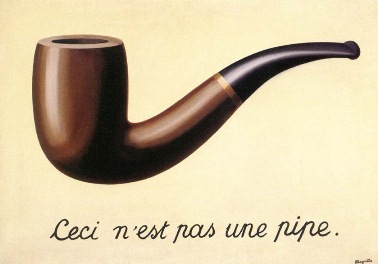Learning the Rules
We start in a “pre-rules” state of mind. When we start out, there are no rules.
As children, we are thrust into a world of other people who are much more developed than us. The adults all seem to have it figured out. This is quite a paralyzing place to be. Helpless, aimless, bumping into things all the time.
And so we spend much of our early lives learning all the rules.
We learn through trial and error, succeeding and failing, being rewarded and being corrected by others. How to dress ourselves. How to speak so we're understood. How to brush our teeth. How to cross the street without getting hit by a car.
The rules start to progress from the basic to the more complex. How to behave in society. How to be a good friend. How to have discipline. How to drive a car.
As we keep growing, the rules become ever more abstract. How to think. How to be creative. How to be successful. How to be happy.
However, as we move into abstraction, the rules become less "rule-like," but we still treat them as if there are rules. There's a right way to brush your teeth. But there's no "right way" to be creative. We remain locked into the idea (the "rule" you might say) that there is a right way. Perhaps we just haven't found the "right way" yet.
Kapil Gupta points out the absurd contradiction in his book, There Is No HOW: Prescriptions, Techniques, and The Illusion of Outcomes:
When it comes to things in the material domain, from success to wealth to whatever it may be, there is zero tolerance for any notion that has an indefinite timeline. If after twenty or thirty years of doing something I have failed, then it absolutely means that what I have been doing does not work. But when it comes to my life itself, finding peace or freedom or whatever it may be, I am willing to accept infinite timelines.
Why do we do this? Perhaps there's some of the path dependency I mentioned earlier. Or perhaps there's a fear that accepting that there's no right way will lead us down the path to "nothing matters" nihilism.
Perhaps this fear of meaninglessness keeps us trapped in a search for the "right way" even when the truth becomes obvious that no such way exists.
Rick Rubin's The Creative Act: A Way of Being has a nice pointer to a way out of the paradox. He writes:
Holding every rule as breakable is a healthy way to live as an artist.
Breaking the Rules
This advice is incredibly freeing. It offers a 3rd way between "follow all the rules" and "rules are meaningless." It's something like "you get to decide which rules you want to follow."
It can be daunting to realize that the power to decide is in our own hands. It comes with responsibility and accountability. But it also comes with freedom, autonomy, and purpose.
Tradeoffs.
Now we don't have to make any specific tradeoffs (that would be a rule), but they are ours to make.
Often, un-making the rules highlights just how thin and brittle they actually are (even as they appeared universal and everlasting). Jenny Odell states it this way in her amazing book, How to Do Nothing: Resisting the Attention Economy:
Every person who, by refusing or subverting an unspoken custom, revealed its often-fragile contours.
This is connected to why Rick Rubin’s advice is so helpful. To be creative is to break from the rules (or norms or habits or customs) that we take for granted. To think outside the box. By holding rules as breakable, we free ourselves to see outside the invisible boxes that we’ve all created for ourselves.
Any rules we follow aren't coming from outside of ourselves. They are coming from us. That's why we can break them. Maybe at one point, someone showed or told us the rule. We internalized it, but still imagine that it exists outside of our own minds.
So if the truth is that all rules are coming from ourselves, we can make up new ones.
When we see our box for what it is and replace it with something else that is personal to us, we prove that the fear of meaninglessness was always unfounded. On the contrary, getting rid of rules gives our lives meaning.
And when we create something that allows others to see outside their invisible boxes, we call it "art." We can create meaning in others' lives as well.
Transcending the Rules
Now we’re right back where we started.
No rules.
Except now instead of paralyzed, we’re free.
But inside that freedom is another fear. If I can choose anything, what do I choose? Which rules do I break? The seeds of more paralysis.
If winning becomes too important in a game, change the rules to make it more fun. Changing rules can become the new game.
Don't like the game you're playing? The new game is called “find a new game to play.”
True power comes from playing your own game. When you choose your own game, you get to choose the win condition, who you play with, what counts as a loss, whether a loss is bad, how long to play.
And because it’s your game, you’re the best at it. If nothing else, it’s a game you will enjoy the most, because it’s yours. It’s you-shaped.
Ceci n’est pas une règle

The best part of Rick Rubin's advice is quite subtle. Take a look at it again:
Holding every rule as breakable is a healthy way to live as an artist.
The advice itself is a rule. lol
Rick Rubin gets it:
There is no wrong way. There is only your way.